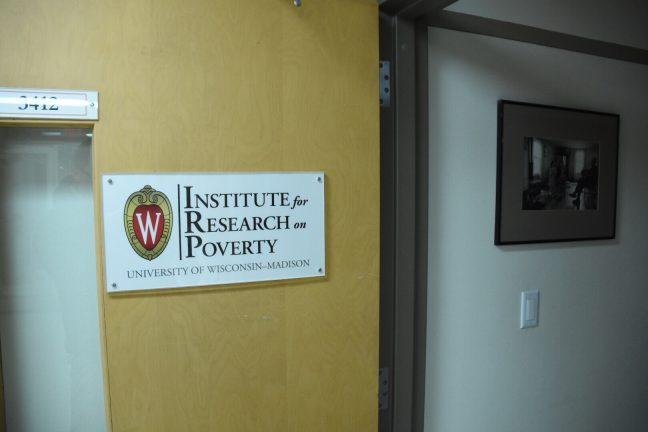The University of Wisconsin announced Sept. 13 that it joined the Shepherd Higher Education Consortium on Poverty, a nonprofit cohort of 25 colleges and universities that provides internship opportunities and integrates coursework with community engagement, specifically oriented towards the study of poverty.
According to the SHECP website, the Consortium, created in 1998 as a collaboration between three universities, has rapidly grown in size to more than two dozen member bodies. The program entails a gateway course at each member school, followed by an eight-week service internship.
The internship, according to the website, involves working for one of 130 partner agencies or providers in a field that relates to both students majors and poverty studies.
Students end the internship with essays and an oral presentation, and are able to continue their poverty studies with relevant coursework from their institution, according to the SHECP website.
As a Consortium university, UW is able to offer a small group of students the opportunity to participate in this internship.
Brett Morash, executive director at SHECP, heralded UW as a national leader in poverty studies. Prior to UW joining SHECP, UW already had a poverty studies focus which encompasses the presence of the Institute for Research on Poverty.
“We’re very excited to have [UW] within the Consortium … It brings a whole different capacity to what we can do as a group,” Morash said. “We’re better together than as individual islands in the ocean — with a consortium, you kind of stitch together all the ideas floating around.”
UW faculty, community leaders launch program to raise income of middle-class Dane County families
UW professors Marcy Carlson, Joel Clark and Lawrence Berger will be administering UW’s membership in the Consortium.
Carlson, a professor of sociology and director of the Center for Demography and Ecology, was introduced to SHECP through a conference she had been invited to speak at.
Regarding her experience, she said she was immediately “amazed by their focus on undergraduate studies” and that she met many researchers who researchers “really care about these student experiences.”
In terms of these experiences, Morash talked about many students who had “really incredible” internships.
He cited one example of a student from the University of Notre Dame, an economics major who assisted a local provider in grant writing. Through his internship, the student wrote a grant that resulted in the local fire department in West Virginia receiving a new fire engine.
Morash also stressed that a variety of students, from a wide variety of majors and backgrounds, were involved in the program.
When students are selecting their preferred positions at the wide variety of partner agencies SHECP works with, he noted that they are matched appropriately and that there is a large spectrum of the kinds of work students can do.
“What’s really important is that they use their unique skills to help,” Morash said.
Another student, a computer science major from Berea University, was matched with a provider in Kentucky which was involved with assisting parents from underserved communities with their children, predominantly single mothers.
The student, Morash said, used her background to create games for the children that taught them basic logic coding skills using “if/then” statements.
These students also get very hands-on with their internships, Morash said and can have real-world impacts through their work.
As Wisconsin overhauls welfare programs, UW offers new anti-poverty solutions
But Carlson said that due to this being UW’s first year of involvement, a chain of continuity will have to be developed, as students will continue to facilitate and organize in the positions they have as interns.
“Its very much about coming alongside those in the organization — not in a way that, when they’re gone, the work disappears,” Carlson said.
Morash said he looks forward to seeing UW and its students flourish.
Even if students do not end up doing work on poverty after graduation, Morash said the skills and philanthropic practice students gain will influence their lives forever.
“I firmly believe that education is the key to ending poverty in the United States,” Morash said. “At SHECP, our approach is going to help move that needle.”













